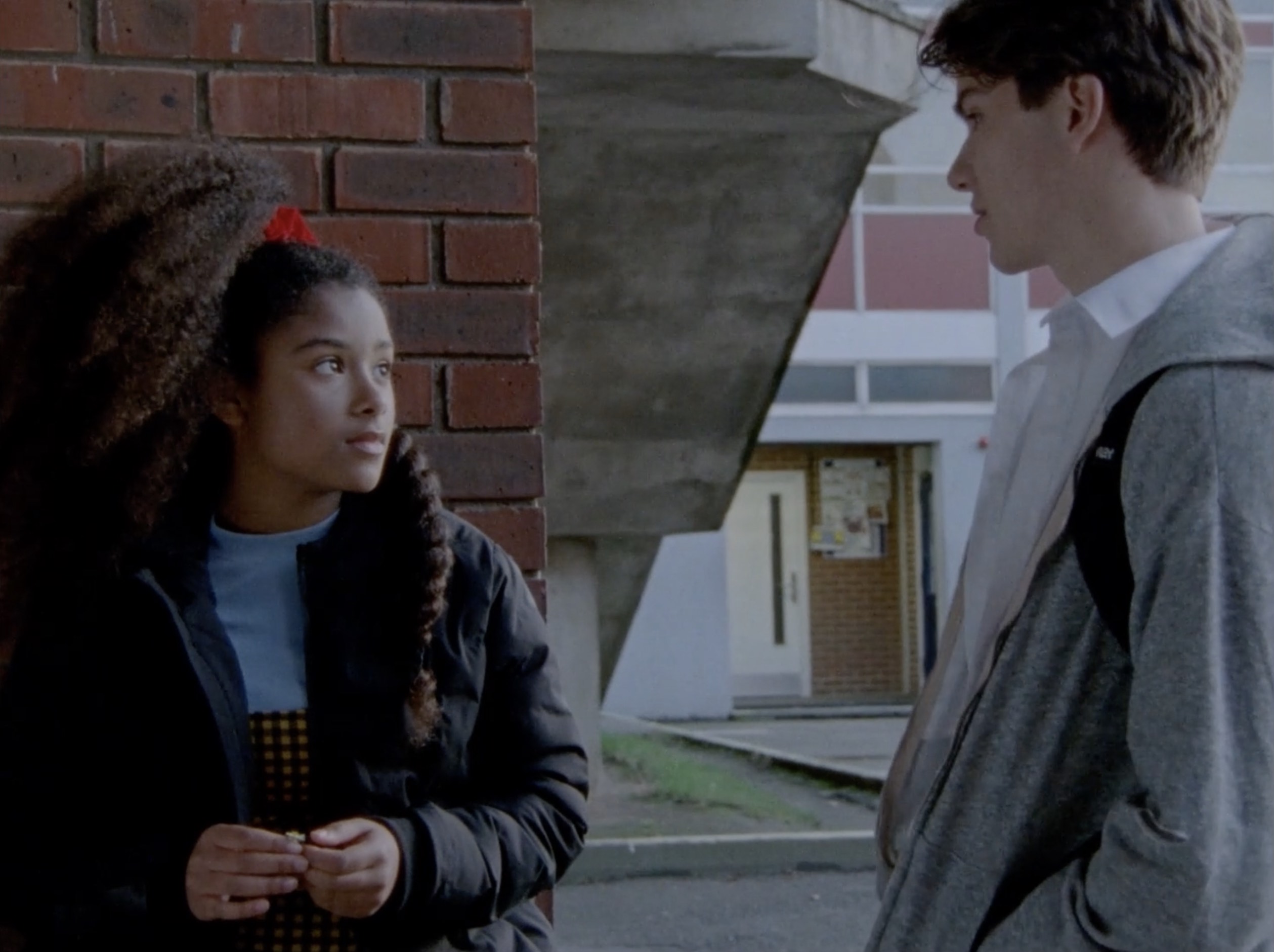Quietly told with a keen eye and gentle touch, Ebele Tate’s NFTS short Kiss Chase follows eleven year-old Nadine as she navigates complicated relationships with her schoolmates, her father, and herself. The story begins right away with a game of the film’s namesake, Kiss Chase. It is innocent enough, as recess charades often are, until someone gets hurt. That someone is Nadine because in this game where ‘tag, you’re it!’ is a kiss, no one wants to kiss her.
The moment reminded me of my own girlhood: those hazy days when I fervently searched for belonging but couldn’t find it anywhere. When I, hyper aware of my maturing body, desperately sought to be seen as beautiful. Such is the power of Tate’s coming-of-age film, as what is clearly a deeply personal story about her own formative years has somehow evoked my own.
Tate does this all with a subtle but rich cinematic language. Shot on film and utilizing a 4:3 aspect ratio, Tate captures Nadine in probing closeups, alienating her in the next breath with isolating wides. Indeed, the camera seems to be the only one who sees Nadine honestly, more honestly than even her own endearing but aloof father. Within these carefully crafted compositions, Tate shows us what it means to come-of-age as a girl: accosted by our own sexuality when to understand it is taboo. This is only compounded by the color of Nadine’s skin: in a predominately white school, she is one of two women of color (at least, that we have seen).

“We really wanted to create a nostalgic portrait of a girl blossoming into womanhood and decided early on that we’d shoot predominantly static shots in 4:3 to create a sense of the past” – Director Ebele Tate
Ultimately, it is another game of Kiss Chase that brings Nadine full-circle. With newly-styled hair and a form-flattering dress she (finally!) captures a boy’s attention. At last he tells Nadine what she longs to hear: she is pretty. The compliment is given, an invitation accepted, and Nadine follows the boy into a quiet classroom where something happens that is much more than a kiss. Part of Nadine’s innocence is lost here in Kiss Chase’s penultimate scene, but if you’re looking for answers Tate will not so easily give them. Instead, she does what she has expertly done her entire film and turns the lens onto Nadine, letting our young heroine’s expression speak for itself.
Has Nadine found what she is looking for?
The question will inspire a number of answers. Allow me to give my own: Nadine is a girl who has glimpsed her power for the first time, but this power is ill-gotten. In her quest for belonging, Nadine has compromised something of herself.

 Lorraine Caffery
Lorraine Caffery